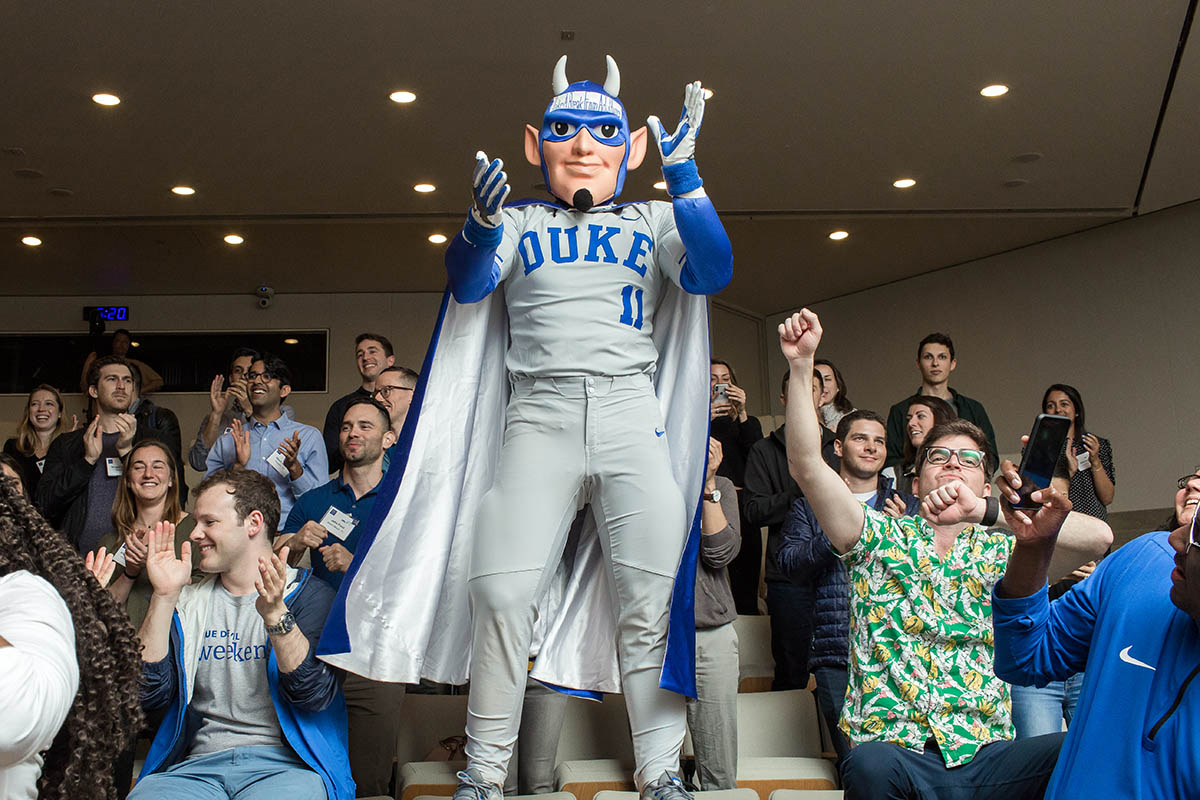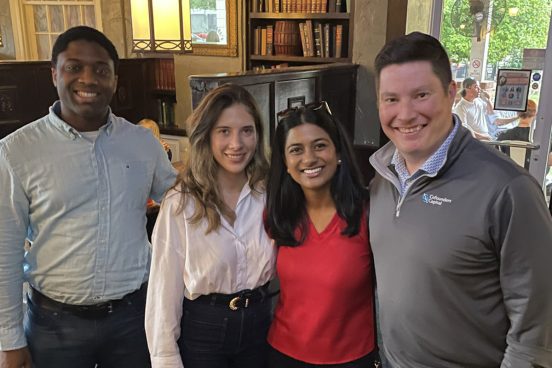Duke Daytime MBA Student Blog

The Value of Cheerleaders for Entrepreneurs
What’s the one tool that every entrepreneur, from Elon Musk to Muhammad Yunis to the 10- year-old girl next door selling lemonade, utilizes on a near-constant basis?

What’s the one tool that every entrepreneur, from Elon Musk to Muhammad Yunis to the 10- year-old girl next door selling lemonade, utilizes on a near-constant basis? Well, besides a bit of ingenuity, of course.
Feedback.
Whether from your mom or a future million-dollar investor, anybody you share your idea with is going to have something to say. Of course, feedback is invaluable. It’s what spurs new ideas and allows us to look at a problem or product through another’s lens. If we aren’t open to letting someone poke holes in our concept or model, we’ll rarely progress. Oftentimes, an individual’s ability to filter feedback, adjust, and move forward is what ultimately defines receiving seed funding from just a fun idea.
However, while feedback is almost ubiquitously well-intentioned, constantly being told that your idea, your vision, your view of the world isn’t right…it can be exhausting. Maybe you were up until 2 a.m. the night before trying to perfect your pitch deck, only to be told that it looks “unprofessional” the next day. Or you’ve finally worked up the courage to tell your mentor about the new side hustle you’re working on, and they tell you there are better ways to be focusing your energy.
Listen to any number of episodes of the “How I Built This” podcast and you’ll hear stories of stubborn, idea-blinded entrepreneurs who were told “no” tens of times by big venture capital firms but kept pursuing their vision because “they knew they were onto something special.”
What I find those (now very successful) founders often leave out though, and what I’ve come to value most about Fuqua’s Center for Entrepreneurship and Innovation ecosystem, is the role of cheerleaders. Cheerleaders, in this context, are those people in your life who balance out the “this isn’t scalable” comments with “wow, I know so many people who could use this” compliments.
Creating a safe space of people who instill confidence within you, believe in your idea, and help you reach your potential isn’t as easy as going to Foot Locker and trying on new shoes until you find the perfect fit (Do people still buy shoes in malls anymore?). It takes time, intentionality, and the ability to put oneself out there. However, through Duke and Fuqua’s entrepreneurial offerings, that is exactly what I’ve found this past spring. From the Student Founder’s Program to the New Ventures Course series, it’s humbling to have a community of peers, professors, alumni, and administrators who want nothing more than for myself and my co-founders to succeed.
The community in those small groups and classes are the first ones to congratulate the team if we’ve secured an important meeting or had an enlightening customer feedback session. Our classmates, some of them even competitors, successfully voted our venture as the “People’s Choice” finalist at a pitch competition. Even a Duke alum turned entrepreneurial mentor reviewed our teams’ application to Y Combinator. It wasn’t just that he gave us great feedback (there’s that tool again) on our application narrative, but it was the lengthy email he wrote explaining why he thought YC will love our model that gave us the moral boost to finally hit submit.
Just as important as the outward demonstrations of support, are those that show a quiet faith in what we’re building. Our professor’s willingness to open her rolodex because she trusts us to reflect well on her and the school fills our team with unspoken confidence. Did I ever think I would be asking someone for hundreds of thousands of dollars? Absolutely not! But is that what I’ve felt empowered to do knowing that there’s an army of people who believe in our idea? Yes.
After being told a bevy of times that “I can’t wait for you all to be billionaires with this idea,” I’ve admittedly got about $999.9 million to go until I start believing it. But, to know that somebody else thinks that highly of us, it’s that kind of flattering words that make us feel like a mbillion bucks.
Editor’s Note: Since this blog was published, the Center for Entrepreneurship and Innovation (CEI) was incorporated into Duke Innovation & Entrepreneurship (Duke I&E), a partnership between Fuqua and Duke Interdisciplinary Studies. You can read more about that partnership here.



